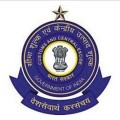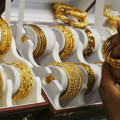Segregated Foreign Material Iron Steel etc. shall be cleared on Payment of Duty
CBEC vide its circular no. 29/17/2016-CX dated 10-05-2016 (F.No. 267/33/2014-CX.8) has clarified that the clearance of segregated foreign materials namely iron, steel, rubber, plastic, dust etc. from honey grade brass scrap before feeding in the furnace cannot be treated as removal of “inputs as such” as envisaged under Rule 3 (5) of CENVAT Credit Rules, 2004. The segregated foreign material in such situation, as has been explained above, shall be cleared on payment of Central Excise duty on transaction value as per its appropriate classification and rate of duty determined on merits.
Circular No.1029/17/2016-CX
F.No. 267/33/2014-CX.8
Government of India
Ministry of Finance
Department of Revenue
Central Board of Excise and Customs
New Delhi, dated the 10th May, 2016
Sub: Clarification on segregation of impurities viz. iron, steel, rubber, plastic, dust etc. from boney grade brass scrap-reg.
…..Representations have been received from the members of the trade involved in manufacture of brass products, regarding applicability of provisions relating to clearance of segregated foreign materials as “inputs as such” from imported honey grade brass scrap. The said imported scrap mainly contains brass metal but it also contains impurities like iron, steel, rubber, plastic, dust etc. which is integrally attached to the main material/ brass scrap. Before feeding resultant brass scrap in the furnace during the manufacturing process, the said foreign materials (impurities) attached to the honey grade brass scrap is segregated manually and then such sorted material is issued for further process like breaking, cutting etc. wherein big pieces of scrap are converted into small pieces so that the same can be fed into the furnace. Ultimately the brass scrap is fed into furnace where brass melts but materials like steel, iron etc. do not as they have higher melting point. Molten brass is poured for manufacturing whereas foundry waste of iron, steel, slag is cleared and sold separately. Such foundry waste is quite clearly process waste.
2.However, there is another category of waste foreign materials segregated initially arid not fed in furnace. The issue is when such segregated foreign material is cleared by the brass manufacturers, can it be treated as clearance of“inputs as such” and accordingly are the manufacturers required to pay an amount equal to the credit availed in respect of such inputs in terms of Rule 3(5) of CENVAT Credit Rules, 2004.
3.The issue has been Segregation from honey grade brass scrap in order to weed out other foreign materials before the process of melting in the furnace is an essential process relating to manufacture of brass articles. The foreign materials, emerging during the process of segregation have to be treated as process waste and cannot be treated like removal of inputs as such. The segregated foreign material has an altogether different character and use 91J-n-Vf$ brass scrap. Value per unit and classification of the segregated foreign material is also different from that of imported brass scrap. Accordingly, clearance of foreign material such as iron, steel, rubber, plastic, dust etc. cannot be treated as clearance of inputs as such. It may be noted that circular no. 62/2001-Cus dated 12.11.2001 does not apply to the issue at hand as the facts at hand are different.
4.In view of above, it is clarified that the clearance of segregated foreign materials namely iron, steel, rubber, plastic, dust from honey grade brass scrap before feeding in the furnace cannot be treated as removal of “inputs as such” as envisaged under Rule 3 (5) of CENVAT Credit Rules, 2004. The segregated foreign material in such situation, as has been explained above, shall be cleared on payment of Central Excise duty on transaction value as per its appropriate classification and rate of duty determined on merits.
5.Difficulty faced, if any, in implementing the circular should be brought to the notice of the Board. Hindi version will
(Rohan)
Under Secretary to the Govt. of India
Source:http://cbec.gov.in/resources/htdocs-cbec/excise/cx-circulars/cx-circulars-2016/circ1029-2016cx.pdf







